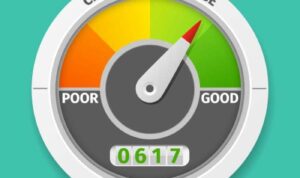Yo, listen up! Debt consolidation is where it’s at. Imagine taking all your debts, bundling them up like a boss, and handling them like a pro. Let’s dive into this money-saving, stress-relieving strategy.
So, you’re ready to level up your financial game? Let’s break down the nitty-gritty of debt consolidation and how it can be a game-changer for your wallet.
What is Debt Consolidation?
Debt consolidation is a financial strategy that involves combining multiple debts into a single loan or payment. This can make it easier to manage debt by streamlining payments and potentially lowering interest rates.
How Debt Consolidation Works
Debt consolidation works by taking out a new loan to pay off existing debts. This new loan typically has a lower interest rate than the original debts, which can help save money over time. By consolidating debts into one payment, individuals can better track their progress towards becoming debt-free.
- Example 1: Sarah has multiple credit card debts with high interest rates. By consolidating these debts into a single personal loan with a lower interest rate, she can save money on interest payments and pay off her debt faster.
- Example 2: Mark has student loans, a car loan, and credit card debt. By using a home equity loan to consolidate his debts, he can benefit from a lower overall interest rate and a single monthly payment.
Types of Debt Consolidation

Debt consolidation offers various options for individuals looking to manage their debts more effectively. Each type comes with its own set of pros and cons, as well as varying interest rates and fees.
Balance Transfer
- Pros: Allows you to transfer high-interest credit card debt to a card with a lower interest rate.
- Cons: Introductory rates may increase after a certain period, and balance transfer fees may apply.
- Interest Rate: Typically offers a lower interest rate for a limited time.
- Fees: Balance transfer fees usually range from 3% to 5% of the amount transferred.
Personal Loan
- Pros: Provides a fixed repayment schedule and interest rate, simplifying debt management.
- Cons: May require collateral for larger loan amounts, and interest rates can vary based on creditworthiness.
- Interest Rate: Depends on your credit score and financial history, but generally lower than credit card rates.
- Fees: Origination fees and prepayment penalties may apply.
Debt Management Plan
- Pros: Offers personalized repayment plans negotiated with creditors to reduce interest rates and fees.
- Cons: Requires regular monthly payments to a credit counseling agency, impacting credit score.
- Interest Rate: Lowered interest rates through negotiations with creditors.
- Fees: Credit counseling agencies may charge setup fees and monthly maintenance fees.
Benefits of Debt Consolidation
Debt consolidation offers numerous advantages to individuals struggling with multiple debts. By consolidating debts into a single monthly payment, individuals can streamline their finances and potentially save money on interest payments. This process can also help in reducing the stress and anxiety associated with managing multiple debts simultaneously.
Effective Financial Management
Debt consolidation can assist individuals in effectively managing their finances by providing a clear and structured repayment plan. With a single monthly payment, individuals can better track their progress in paying off their debts and avoid missing any payments. This can lead to improved financial organization and peace of mind.
- Combines multiple debts into one manageable payment
- Reduces the risk of missing payments and incurring late fees
- Streamlines financial management and budgeting
Impact on Credit Scores
Consolidating debts can have a positive impact on credit scores if managed responsibly. By making timely payments on the consolidated loan, individuals can demonstrate financial responsibility and improve their creditworthiness over time. Additionally, by reducing the overall debt load, debt consolidation can lower the credit utilization ratio, which is a key factor in determining credit scores.
- Opportunity to rebuild credit history through consistent payments
- Potential for a lower credit utilization ratio
- Overall improvement in credit scores with successful debt repayment
How to Consolidate Debt

Consolidating debt involves combining multiple debts into a single monthly payment, typically with a lower interest rate. Here are the steps involved in the debt consolidation process:
Step 1: Assess Your Debt
- Make a list of all your debts, including the total amount owed, interest rates, and minimum monthly payments.
- Calculate your total debt to determine the amount you need to consolidate.
Step 2: Research Debt Consolidation Options
- Explore different debt consolidation methods such as balance transfer credit cards, personal loans, or home equity loans.
- Compare interest rates, fees, and repayment terms to find the best option for your financial situation.
Step 3: Apply for a Debt Consolidation Loan
- Submit an application for the chosen debt consolidation option.
- Provide all necessary documentation and information to support your application.
Step 4: Pay Off Your Existing Debts
- Once approved, use the funds from the consolidation loan to pay off your existing debts in full.
- Ensure timely payments to avoid accruing additional interest or fees.
Step 5: Create a Budget and Financial Plan
- Develop a budget to manage your expenses and ensure you can afford the consolidated monthly payment.
- Focus on saving and building an emergency fund to avoid future financial crises.



